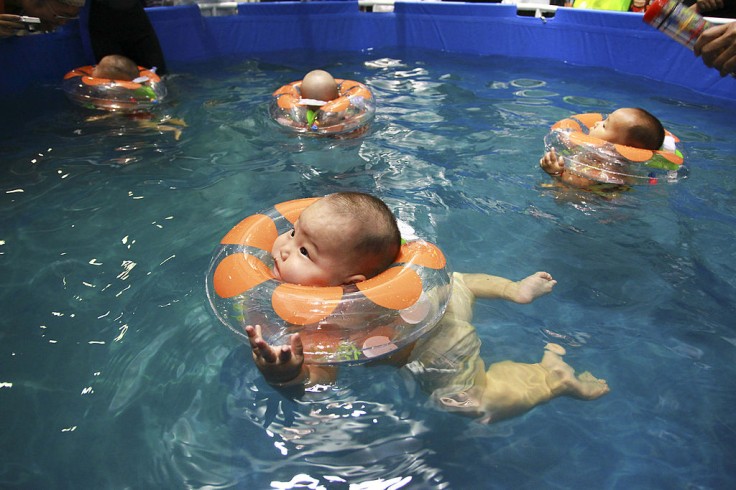
The Food and Drug Administration (FDA) warns parents about using neck floats on their babies following a reported incident of a baby dying and another hospitalized. Wearing neck floats could risk a child's life, leading to suffocation, strain, and injury to a baby's neck.
The FDA is now urging parents not to use neck floats, especially if their babies have special needs, as part of water therapy.
Neck floats are commonly marketed for babies as young as over weeks old or premature babies as they are designed to assist a baby's head while their body moves freely in the pool or water.
Risks of using neck floats
In an ABC News interview, Dr. Linda Quan, an American Academy of Pediatrics (AAP) spokesperson, stated, "The market will keep coming up with ways to float infants and adults and market them. This is not a lifesaving device, not designed to be. We consistently say anything inflatable is only a toy and can deflate. No child should be unsupervised or left alone in the water, even with a personal flotation device or if wearing a US Coast Guard-approved life jacket."
Toddlers might look adorable while wearing neck floats, but these pose a drowning risk.
"Neck floats for babies scare me to death, and I hope they scare parents," said Kyran Quinlan, Associate Professor of Pediatrics at Rush University Medical Center and former chair of the AAP Council on Injury, Violence and Poison Prevention. He added neck floats are potential death traps, per Daily Mail.
While this kind of float does what they claim, experts disagree on the potential risk it poses.
Neck floats deflate, causing babies to drown
Neck floats are attached and worn around the neck to cradle a baby's head. Not only do these neck floats have the potential to deflate, which can cause drowning, but it also hinders their movement since they can also suffocate them.
"While disengaging from the world in floating tanks can be wonderfully relaxing for stressed adults, this is not what babies want or need - physically or emotionally," Kaylë Burgham, from the Swimming Teachers' Association (STA).
According to the FDA, neck floats increase muscle tone, greater flexibility and range of motion, increased lung capacity, great quality of sleep, and expand brain and nervous system stimulation. However, the safety and effectiveness of such products in promoting motor development or as a physical therapy tool have not been established.
"This isolated activity completely goes against the very essence of baby swimming, which is human contact: bonding with your child so they can explore the water in a safe, relaxed, fun environment," said Burgham per Good House Keeping.